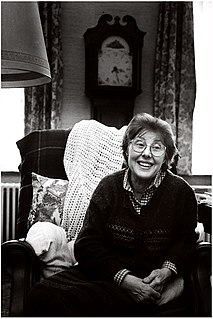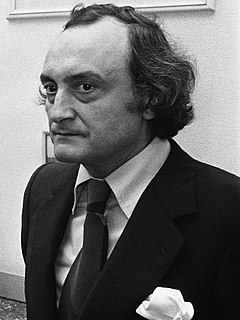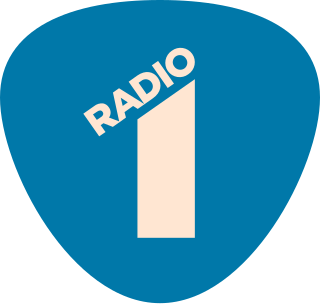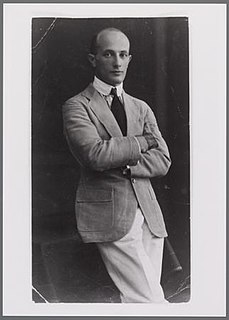
Wannes Van de Velde, born Willy Cecile Johannes Van de Velde, in Antwerp, was a Flemish folk singer, guitarist, musician, poet, puppeteer and artist. He is most famous for his songs Ik Wil deze Nacht in de Straten Verdwalen (1973), Mijn Mansarde and De Brug van Willebroek (1990). His work is often categorized as kleinkunst. Van de Velde was known for singing in his local dialect.

Aart Staartjes was a Dutch actor, director, television presenter and documentary maker from Amsterdam. He was well known for his role on Sesamstraat, the Dutch co-production of Sesame Street. On this show, his character's name was Meneer Aart and in this persona he authored a book called Meneer Aart: Leven en werken van de man die geen kindervriend wil heten.

Leo Apostel was a Belgian philosopher and professor at the Vrije Universiteit Brussel and Ghent University. Apostel was an advocate of interdisciplinary research and the bridging of the gap between exact science and humanities.
The Arkprijs van het Vrije Woord is a symbolic award created in 1951 by Herman Teirlinck and the editorial team of the Nieuw Vlaams Tijdschrift to counteract ideologically driven restrictions on the freedom of expression.

Christine D'haen was a Flemish author and poet. She was born in Sint-Amandsberg and died at Bruges.
Maurice D'Haese was a Flemish writer who was awarded the 1953 Ark Prize of the Free Word.
Jos De Haes was a Flemish writer and poet.

Henri Paul René Ceuppens, who wrote under the pseudonym Ivo Michiels, was a Belgian writer.

Hugues C. Pernath was a Belgian writer. Together with Paul Snoek, he founded the avant garde magazine Gard Sivik, and he was a member of the Pink Poets. The literary award Hugues C. Pernath-prijs is named after him.
Georges Hebbelinck was a Flemish writer.
Willy Roggeman is a Belgian writer and jazz musician.
Eduard Léon Juliaan van Vliet was a Belgian writer and lawyer. He graduated in law at the Vrije Universiteit Brussel. The fact that his father left his family, played an important role in his poetry.
Sophie, Baroness De Schaepdrijver is a Belgian historian.
Paul Gustaaf Julia Hoste, pseudonym Pol Hoste is a Belgian writer. He graduated in Germanic philology at the University of Ghent. He started his career as a teacher of the English and Dutch languages. From 1983 until 1985 he was an editor at Heibel and made contributions to De Morgen, De Nieuwe and the Volkskrant.

Radio 1 is a Belgian radio channel operated by the Flemish public broadcaster Vlaamse Radio- en Televisieomroep (VRT).

Het Vrije Volk was a Dutch social-democratic daily newspaper. It was the successor, after World War II, of the socialist daily Het Volk. The paper appeared legally 1 March 1945 in Eindhoven. From 28 January 1946, all subdivisions of the newspaper were united and a national edition was introduced. For a time, it was the biggest newspaper in the Netherlands and at its peak it had over 300 editors and reporters. After 1958, the number of subscribers decreased rapidly.
Vrij or De Vrij may refer to:

Adolf Baars was a Dutch-Jewish Communist, engineer, and writer who is largely remembered today for his early role in the Indische Sociaal-Democratische Vereeniging and the Indonesian Communist Party.

Het Vrije Woord was a left-wing newspaper printed in the Dutch East Indies from 1915 to 1922, associated with the Indische Sociaal-Democratische Vereeniging and the Indonesian Communist Party in its early years.

Het Vrije Woord was a Dutch-language newspaper published clandestinely in Belgium during the German occupation in World War II. The Vrije Woord was the result of co-operation largely between various different groups, including Catholics, Jews and Trotskyites and, although its circulation was never as extensive as other Flemish underground newspapers, it was distinguished by its high-brow content.
This page is based on this
Wikipedia article Text is available under the
CC BY-SA 4.0 license; additional terms may apply.
Images, videos and audio are available under their respective licenses.










